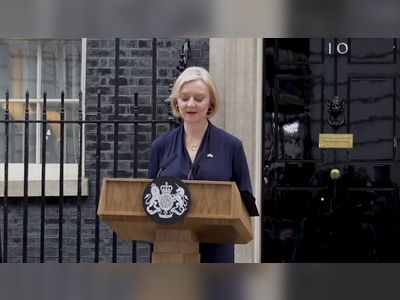UK Tenant Complaints Hit Record Levels as Rental Sector Faces Mounting Pressure
Average complaints per local authority reach around one thousand two hundred in 2024, nearly double a decade ago, ahead of sweeping renters’-rights reforms
Complaints made by private and social tenants across the United Kingdom surged to an all-time high in 2024, with the average local authority recording approximately one thousand two hundred tenant complaints, up from less than seven hundred a decade earlier.
That sharp rise precedes a wave of new legislation designed to strengthen renters’ rights across England and Wales.
According to Freedom of Information responses obtained from councils nationwide, the average number of complaints logged by each local authority rose to about one thousand two hundred in 2024, up from about one thousand one hundred in the previous year and markedly higher than the under-seven-hundred level seen ten years ago.
These figures illustrate both the growing strain on housing services and the heightened scrutiny of private- and social-rented accommodation.
While the full details behind each complaint vary — ranging from disrepair, damp and mould, to service failure and landlord-tenant dispute — the trend reflects a broader escalation in tenant dissatisfaction and enforcement demand.
Data from the Housing Ombudsman Service show that in the year to 31 March 2025 the body made 7,082 determinations in the social housing sector alone — a 30 per cent rise on the previous year — and upheld 71 per cent of the complaints.
Issues of property condition remained the dominant category.
This upsurge in grievances comes at a time when landmark reforms are set to reshape the rental landscape.
The newly-enacted Renters' Rights Act 2025 (England and Wales) and the companion consumer protection regime in Scotland will strengthen legal rights for tenants, impose stricter conditions on landlords and introduce greater potential for redress.
The surge in complaints underscores the urgency of these regulatory changes and the challenge facing landlords and local authorities in delivering higher service standards.
Many local authorities report mounting pressure from staffing constraints, ageing housing stock and the backlog of repairs.
In turn, tenants are increasingly turning to formal grievance channels rather than informal resolution.
For landlords — in both the private and social rented sectors — the data signal that responsiveness, property upkeep and complaint-handling protocols may soon become key regulatory and reputational battlegrounds.
With the average complaint count now nearly doubling compared with a decade ago, housing sector stakeholders from councils to housing associations and letting agents will face intensified regulatory scrutiny in the coming months.
Implementation of the new reforms will test whether the rising trend in tenant complaints can be reversed through improved practice, investment and accountability.
As the rental sector braces for legislative change and rising tenant expectations, the year ahead will be pivotal for how complaints are resolved and how service-standards evolve in tandem with reform.
That sharp rise precedes a wave of new legislation designed to strengthen renters’ rights across England and Wales.
According to Freedom of Information responses obtained from councils nationwide, the average number of complaints logged by each local authority rose to about one thousand two hundred in 2024, up from about one thousand one hundred in the previous year and markedly higher than the under-seven-hundred level seen ten years ago.
These figures illustrate both the growing strain on housing services and the heightened scrutiny of private- and social-rented accommodation.
While the full details behind each complaint vary — ranging from disrepair, damp and mould, to service failure and landlord-tenant dispute — the trend reflects a broader escalation in tenant dissatisfaction and enforcement demand.
Data from the Housing Ombudsman Service show that in the year to 31 March 2025 the body made 7,082 determinations in the social housing sector alone — a 30 per cent rise on the previous year — and upheld 71 per cent of the complaints.
Issues of property condition remained the dominant category.
This upsurge in grievances comes at a time when landmark reforms are set to reshape the rental landscape.
The newly-enacted Renters' Rights Act 2025 (England and Wales) and the companion consumer protection regime in Scotland will strengthen legal rights for tenants, impose stricter conditions on landlords and introduce greater potential for redress.
The surge in complaints underscores the urgency of these regulatory changes and the challenge facing landlords and local authorities in delivering higher service standards.
Many local authorities report mounting pressure from staffing constraints, ageing housing stock and the backlog of repairs.
In turn, tenants are increasingly turning to formal grievance channels rather than informal resolution.
For landlords — in both the private and social rented sectors — the data signal that responsiveness, property upkeep and complaint-handling protocols may soon become key regulatory and reputational battlegrounds.
With the average complaint count now nearly doubling compared with a decade ago, housing sector stakeholders from councils to housing associations and letting agents will face intensified regulatory scrutiny in the coming months.
Implementation of the new reforms will test whether the rising trend in tenant complaints can be reversed through improved practice, investment and accountability.
As the rental sector braces for legislative change and rising tenant expectations, the year ahead will be pivotal for how complaints are resolved and how service-standards evolve in tandem with reform.









